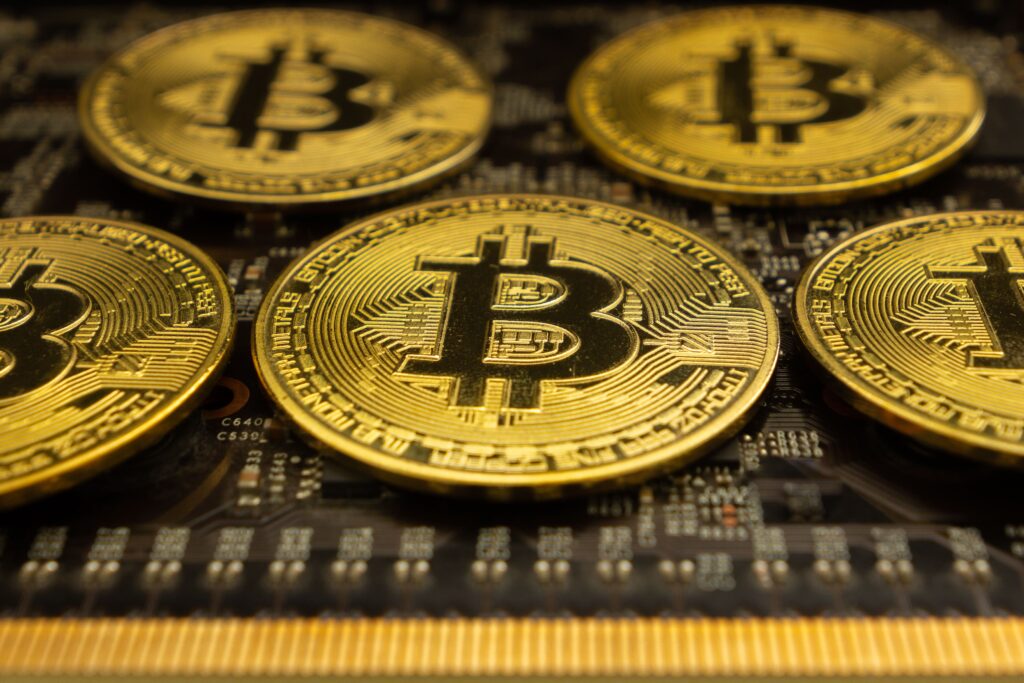In the ever-evolving landscape of cryptocurrencies, Bitcoin remains a groundbreaking innovation that has captured the world’s attention. But have you ever wondered how new bitcoins are created and transactions are verified? The answer lies in the fascinating process of Bitcoin mining.

How Does Bitcoin Mining Work?
Decoding the Mining Process
At the core of Bitcoin’s blockchain technology is the concept of mining. Unlike traditional currencies that are issued by central banks, bitcoins are created through a decentralized process. Bitcoin miners, armed with powerful computers, compete to solve complex mathematical puzzles. The first miner to successfully solve the puzzle gets the privilege of adding a new block of transactions to the blockchain. This process not only verifies transactions but also introduces new bitcoins into circulation.
How to Choose Hardware for Bitcoin Mining?
Navigating the World of Mining Equipment
Choosing the right hardware for Bitcoin mining is a critical decision that directly impacts your mining efficiency. Two main types of hardware are commonly used:
- ASIC (Application-Specific Integrated Circuit) Miners: These specialized machines are designed solely for mining purposes, offering high computational power and energy efficiency.
- GPU (Graphics Processing Unit) Miners: Originally designed for gaming, GPUs have found a new purpose in mining due to their versatility and cost-effectiveness.
When selecting hardware, factors like hashing power, energy consumption, and initial investment should be considered. It’s essential to strike a balance between upfront costs and long-term profitability.
How Are Bitcoin Miners Paid?
The Rewards of Mining
Bitcoin miners are rewarded for their efforts in two ways: block rewards and transaction fees. Block rewards are the newly created bitcoins that miners receive for successfully adding a new block to the blockchain. Initially set at 50 bitcoins, block rewards halve approximately every four years as part of Bitcoin’s predetermined emission schedule.
In addition to block rewards, miners also earn transaction fees paid by users for including their transactions in the block. As the number of transactions increases, transaction fees become an increasingly important component of miners’ earnings.
Is Bitcoin Mining Legal?
Navigating the Legal Landscape
The legality of Bitcoin mining varies from country to country. While some nations embrace cryptocurrencies and consider mining legal, others have imposed restrictions or outright bans. It’s crucial to research and understand the regulatory environment in your jurisdiction before embarking on a mining venture. Compliance with legal requirements ensures a smooth and trouble-free mining experience.
Risks and Limitations
The Challenges Miners Face
Bitcoin mining, while lucrative, is not without its challenges. Here are some key risks and limitations to consider:
- High Energy Consumption: Mining requires significant computational power, leading to high electricity consumption and environmental concerns.
- Increasing Difficulty: As more miners join the network, the puzzles become harder to solve, making it more challenging to earn rewards.
- Market Volatility: The value of bitcoins can fluctuate dramatically, impacting the profitability of mining operations.
- Hardware Costs: Acquiring and maintaining mining hardware can be costly, affecting the overall return on investment.

Conclusion: Your Path to Understanding Bitcoin Mining
Congratulations, you’ve unlocked the secrets of Bitcoin mining! From grasping the intricacies of the mining process to selecting the right hardware, understanding miners’ rewards, and navigating the legal and risk landscape, you’re now equipped with essential knowledge to delve into the world of cryptocurrency mining. Remember to stay informed about regulatory changes and market dynamics to make informed decisions on your mining journey.

